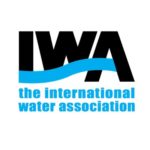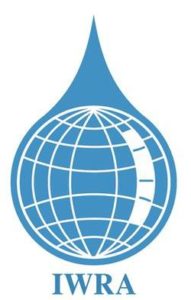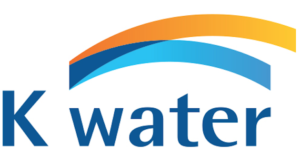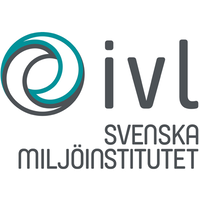Smart water solutions are already being adopted around the world. We asked five experts from utilities, research institutes and non-profits about major challenges in the water industry. They discuss how smart water technology can help solve them, and how implementing smart water technologies can be accelerated.
1. “Disruptive solutions to address risk in new and innovative ways”

Katharine Cross is Programme Manager for Basins of the Future at the International Water Association (IWA). The IWA promotes water and wastewater management worldwide through R&D, organizing events for the water sector, and influencing regulation and policy.
Water industry challenges: “Challenges include water availability, deteriorating water quality, and extreme events such as floods or droughts.”
How smart water helps: “Smart water technologies present an opportunity to come up with disruptive solutions to address risk in new and innovative ways. Sharing and enabling access to data, including observed data, citizen science and modeling, can help you optimize your water system or prepare and respond to extreme events such as floods and droughts. It can also help you move towards innovative solutions such as decentralized approaches, which can in turn help improve health and access to water and sanitation services.”
Barriers to implementation: “One of the biggest barriers across the water sector is aversion to risk. There’s this mindset that we need to continue along the same path because that is the safest option.”
Accelerating implementation: “Through sharing of information, sharing of knowledge. Networks such as the IWA can help bridge this chasm between innovation and practice.”
2. “Smart water management solutions are already delivering big benefits”

Stephanie Kuisma is Project Officer at the International Water Resources Association (IWRA), a non-profit, non-governmental organization dedicated to improving and expanding the understanding of water issues through education, research and information exchange.
Water industry challenges: “One is climate change, and the uncertainty created by climate change. Another major challenge is population growth, which means that infrastructure is reaching capacity or going beyond capacity.”
How smart water helps: “The implementation of smart water management solutions is already delivering big benefits around the world – on big and small scales and in developing and developed countries. The greatest opportunity for smart water is the improved quality and quantity that can be provided. And the benefits aren’t just about water. There can be much broader impacts on the communities that are using those water resources.”
Barriers to implementation: “The lack of standardization of the technology and the data, which means that as a water manager, you have to often pick a technology that then commits you to a certain technology pathway. Another barrier to the implementation is a lack of willingness to share data.”
Accelerating implementation: “The migration to smart water solutions can be accelerated by also valuing the non-financial benefits of smart water technologies – benefits to the community, benefits to the water users that aren’t necessarily quantifiable in terms of that financial return on investment.”
3. “A change of vision and a dialogue between all stakeholders”

Cléo Lossouarn is Project Manager for Sanitation and Urban Planning at the Greater Paris Sanitation Utility (SIAAP), a French public utility that transports and treats wastewater, stormwater and industrial water for nine million people in the Paris urban area.
Water industry challenges: “Cross-checking between stakeholders managing water in the same area. We really need tools that enable dialogue between all the stakeholders involved.”
How smart water helps: “Smart water management tools result in a change of vision and a dialogue between all the stakeholders working in the same area. With load pollutant management, cost parameters could be integrated into the tool to reduce operating costs for the system. We can also integrate parameters to follow up and monitor water quality.”
Barriers to implementation: “One barrier is alignment, making sure that all stakeholders are willing to share information, and share it in a standardized way.”
Accelerating implementation: “To get stakeholders interested in smart water management and drive change, we need to give value to the benefits and the outputs smart tools provide, and make it clear what it would cost without the smart water management tools.”
4. “Helping people understand and assess the quality of the water they drink”

Jinsuhk Suh is Senior Researcher at the K-Water Institute, a Korean government-run corporation that constructs, operates, manages and develops facilities for water resources, waterworks, sewage and renewable energy.
Water industry challenges: “In Korea, aging infrastructure is a really serious problem. Another challenge is changing people’s perception of water, getting them to understand that they can drink water directly from the tap.”
How smart water helps: “Smart management tools provide quality data that we can give to people to help them understand and assess the quality of the water they drink. Another is that smart water technology, like metering, makes it possible to very easily find problem spots in a pipeline to prioritize replacements and facilitate long-term planning.”
Barriers to implementation: “I think many operators don’t want to change their systems because of the additional work needed. Also, because the water supply system is underground, it is not prioritized in the same way as general infrastructure.”
Accelerating implementation: “Education and confidence-building are very important. We need to change people’s perceptions of the water they drink.”
5. “An opportunity to have better knowledge about the actual situation”

Östen Ekengren is Executive Vice President at the IVL Swedish Environmental Research Institute, a publicly funded company that combines applied research and development to promote ecologically, economically and socially sustainable growth in business and within society at large.
Water industry challenges: “Climate change is the number one issue for most of us because it connects to everything. Another is that the water sector is not very well organized. You have one organization responsible for wastewater treatment and another responsible for fresh water distribution, and sometimes you don’t connect them.”
How smart water helps: “Smart water gives you an opportunity to have better knowledge about the actual situation, to have a broader perspective and new ideas about how water can be used. I think a very good step forward is that we start to reuse much more of the water we have already treated, and find new ways to treat it. Smart meters help you understand how water is used, and how to optimize it.”
Barriers to implementation: “One is money – companies don’t have the money to make the investment. Another is that the cities have a lot of information, but they won’t share it. People working with water should have the same, high-level goals.”
Accelerating implementation: “More openness from the municipalities and also more collaboration between the private sector and research. That would be the way forward.”

